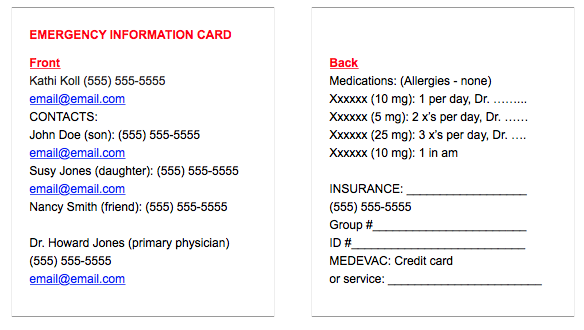For many family caregivers, love may be the solid underpinning that sustains them.
This love may flow back and forth between the one receiving care and the caregiver in a way that deepens their bond. Years of caregiving may be a time for appreciation and connection as life slows from the fast pace of the outside world to the slow time of home and nurturance. The simple activities of eating, bathing, and toileting may become long processes while conversation may also happen only in small increments when the patient can manage it. This unhurried pace can provide a space for love to mature and transform into something even more precious.
Unfortunately, the opposite can also occur. A once loving relationship can suffer during the common trials of caregiving. This can happen for multiple reasons. A caregiver may simply wear out and have little energy for nourishing a loving bond.
Or perhaps, the relationship has changed dramatically, and love may start to wither because of it. For example, if long-term dementia is part of the picture, loved ones may become so altered that it can be almost impossible to connect with them. Or sometimes ailments may cause a loved one to shrink from the outside world in shame, leaving the caregiver isolated and frustrated. Alternatively, a relationship may have been challenging already, and caregiving can exacerbate the situation.
And yet, even with these types of problems, love will still be there, and even a tiny kernel of it can provide sustenance during the caregiving journey. But even better, if that love can be nourished and encouraged to flourish during this difficult time, it can provide insights and wisdom that no other experience may offer.
Sometimes the harder life is, the more it has to offer. But how can love be nurtured when life has so many strains?
Here are some ideas that may help:
1) Look Inward
It may be counterintuitive, but taking stock of yourself can help nurture love. Assess your feelings. What is difficult for you about caregiving? Bathing, toileting, feeding? What would make it easier? Do you have an outlet to express feelings of sadness or frustration or are they bottled up and hurting you and thus your loved one? Do you need a break to replenish? What do you need? Whatever you discover, take the time to address it, because everyone has needs that, if unmet, can fester and break down feelings of love. You have to love and care for yourself well to love and care for someone else.
2) Consider Self-talk
One behavior that is simultaneously both incredibly easy and incredibly difficult to change is the way you speak to yourself. It’s easy to alter because you don’t even have to move to do it. You can wake up in the morning and say to yourself, “I love caring for my loved one. She is precious to me. I’m blessed to be able to step in and care for her at this moment.” However, it’s difficult, because everyone has self-talk, and sometimes damaging self-talk can be hard to stop. If instead, you’re waking up with feelings of dread or anger or sadness, it can be hard to say something different to yourself. Yet, it can help. Take time when caregiving to silently remember your love or think simple phrases like “I love you.” Notice if you’re giving yourself negative messages and perhaps find someone who will let you vent to them, even if only via text, so you can safely let those feelings out, then start again. Or perhaps, use the meditation technique of noticing your feelings and then letting them go. Then try again to consider the love inside you and between you and your loved one. Speak it out loud. Saying the simple words “I love you” might help you remember feelings of love that have been drowning in the pain or exhaustion of caregiving.
3) Practice Forgiveness
Forgiving someone is not easy, and forgiving yourself can be even harder. Yet, hanging onto past pains or present feelings of inadequacy may not only cause pain, but also kill love. So, remember to take time to think about mistakes your loved one made in the past or recently due to illness and let them go. If you can forgive, you will experience a peaceful, loving feeling that will revive love. Also, the same can be true for yourself. Forgive yourself for anger, for speaking sharply, for not being perfect. Who is? Let it go, and try again. You are doing your best, and that is precious.
And if you can find moments of laughter in your day, cherish them. There is nothing like a good laugh to bring people closer together. It’s hard not to love someone you’re laughing with, even if the laugh begins with something sad, such as how hard your loved one finds it to eat or speak or bathe these days.
Thank you for reading! —Kathi Koll
P.S. I received so much positive feedback from my blog, “It’s a vacation…until it isn’t!” that I decided it was important to share the emergency card here each month because this medical information is vital to have on hand whether you are traveling abroad or taking a day trip.
Keep this list with you at all times. I’ve laminated mine and keep it in my wallet next to my driver’s license. The list should consist of the following information:
- Phone numbers and email addresses of important contacts (My list consists of my children, primary doctor, and my own personal contact information. If you don’t have a personal doctor now is the time to engage one. Having a primary doctor who is familiar with your health history is vital.)
- Medications, including strength, dosage, and prescribing doctor.
- Insurance company with phone number, group number, and ID number.
- Credit card number, especially if you have a card that offers medevac service
- Travel insurance details.

Click here to download your own.
If you don’t have access to a computer or have trouble formatting don’t worry, just write the information down on an index card take it to Kinko’s and get it laminated. It can be a lifesaver.
To make an online donation to The Kathi Koll Foundation, please click here.


